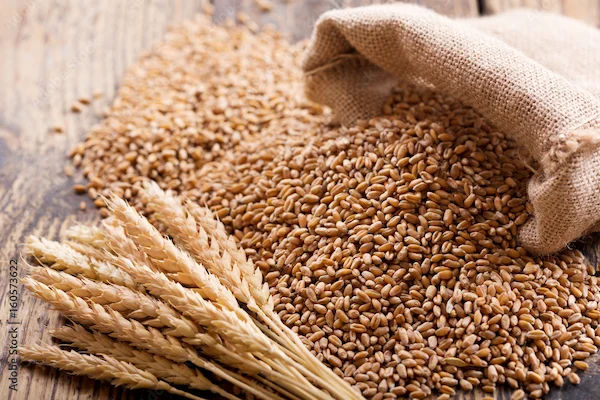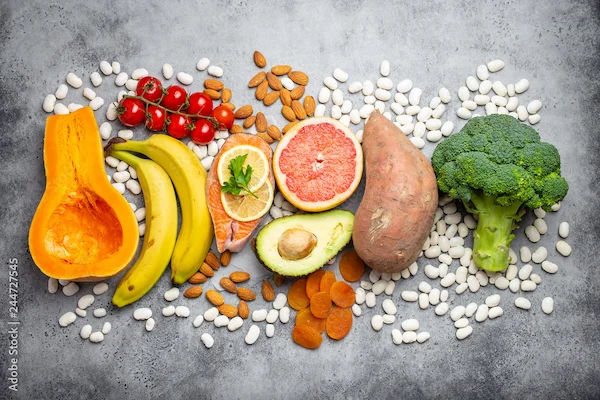Managing Thyroid Levels in Women Through Diet
Discover how women can manage thyroid levels through diet. Learn about essential nutrients, foods to avoid, and lifestyle tips to support thyroid health alongside medical treatment for optimal well-being.

Written by Dr. Dhankecha Mayank Dineshbhai
Reviewed by Dr. Siri Nallapu MBBS
Last updated on 26th Aug, 2025

Thyroid disorders, such as hypothyroidism (underactive thyroid) and hyperthyroidism (overactive thyroid), are common among women. The thyroid gland plays a crucial role in regulating metabolism, energy levels, and overall health. While medication is often necessary, dietary choices can significantly impact thyroid function and help manage symptoms.
In this article, we’ll explore how women can support their thyroid health through nutrient-rich foods, dietary adjustments, and lifestyle changes.
Understanding Thyroid Disorders in Women
Why Are Women More Prone to Thyroid Issues?
Women are 5-8 times more likely to develop thyroid disorders than men. Hormonal fluctuations during pregnancy, menopause, and menstruation can affect thyroid function. Additionally, autoimmune conditions like Hashimoto’s thyroiditis (hypothyroidism) and Graves’ disease (hyperthyroidism) are more common in women.
Common Symptoms of Thyroid Imbalance
Hypothyroidism (Low Thyroid Hormone): Fatigue, weight gain, dry skin, hair loss, constipation, depression, and sensitivity to cold.
Hyperthyroidism (High Thyroid Hormone): Weight loss, rapid heartbeat, anxiety, sweating, tremors, and insomnia.
If you experience these symptoms, consult a doctor for proper diagnosis and treatment.
Key Nutrients for Thyroid Health
A well-balanced diet can support thyroid function. Here are the essential nutrients to focus on:
1. Iodine (Crucial for Thyroid Hormone Production)
- Why it’s important: The thyroid needs iodine to produce hormones (T3 and T4).
- Best sources: Seaweed, iodized salt, fish (cod, tuna), dairy products, and eggs.
- Caution: Too much iodine can worsen hyperthyroidism.
2. Selenium (Supports Thyroid Hormone Metabolism)
- Why it’s important: Helps convert T4 to active T3 and protects the thyroid from oxidative damage.
- Best sources: Brazil nuts (just 1-2 per day!), sunflower seeds, eggs, chicken, and seafood.
3. Zinc (Helps in Hormone Regulation)
- Why it’s important: Supports thyroid hormone synthesis and immune function.
- Best sources: Pumpkin seeds, lentils, chickpeas, cashews, and oysters.
4. Iron (Prevents Fatigue & Supports Thyroid Function)
- Why it’s important: Low iron levels can worsen hypothyroidism.
- Best sources: Spinach, lentils, red meat, quinoa, and dried apricots.
- Tip: Pair iron-rich foods with vitamin C (lemon, oranges) for better absorption.
5. Omega-3 Fatty Acids (Reduces Inflammation)
- Why it’s important: Helps reduce inflammation linked to autoimmune thyroid disorders.
- Best sources: Fatty fish (salmon, sardines), flaxseeds, chia seeds, and walnuts.
6. Vitamin D (Supports Immune Function)
- Why it’s important: Low vitamin D is linked to autoimmune thyroid diseases.
- Best sources: Sunlight, fortified milk, mushrooms, and fatty fish.
Foods to Avoid for Thyroid Health
Some foods can interfere with thyroid function, especially if consumed in excess:
1. Goitrogenic Foods (May Block Iodine Absorption)
- Examples: Raw cruciferous vegetables (kale, broccoli, cabbage, cauliflower, Brussels sprouts).
- Solution: Cooking these vegetables reduces their goitrogenic effect.
2. Soy Products (May Interfere with Thyroid Medication)
- Why? Soy can affect hormone absorption.
- Solution: If you have hypothyroidism, consume soy in moderation and take thyroid medication at least 4 hours apart from soy products.
3. Gluten (May Trigger Autoimmune Reactions in Some)
- Why? Gluten sensitivity is linked to Hashimoto’s thyroiditis.
- Solution: Try a gluten-free diet if you have autoimmune thyroid issues.
4. Excess Sugar & Processed Foods (Increase Inflammation)
- Why? They worsen fatigue and weight gain in hypothyroidism.
- Solution: Opt for whole, unprocessed foods.
Lifestyle Tips to Support Thyroid Health
1. Eat Regular, Balanced Meals
- Skipping meals can slow metabolism further (especially in hypothyroidism).
- Include protein, healthy fats, and fiber in every meal.
2. Stay Hydrated
Dehydration can worsen fatigue and dry skin.
3. Manage Stress
Chronic stress affects thyroid function. Try yoga, meditation, or deep breathing exercises.
4. Exercise Regularly
- Helps boost metabolism, energy, and mood.
- Best options: Walking, swimming, strength training, and yoga.
5. Get Enough Sleep
Poor sleep disrupts hormone balance. Aim for 7-9 hours per night.
onsult Top Specialist
When to Seek Medical Help?
While diet plays a supportive role, thyroid disorders require medical treatment. If you experience:
- Persistent fatigue, weight changes, or mood swings
- Irregular periods or fertility issues
- Swelling in the neck (goiter)
- Consult a doctor for thyroid function tests (TSH, T3, T4).
Need a Thyroid Check-Up?
You can book a thyroid test or consult an endocrinologist through Apollo 24|7. Early diagnosis and treatment can prevent complications.
Final Thoughts
Managing thyroid levels through diet involves:
- Eating iodine, selenium, zinc, and omega-3-rich foods
- Avoiding excess goitrogens, gluten, and processed foods
- Maintaining a healthy lifestyle with stress management and exercise
- Small dietary changes can make a big difference in energy levels, weight management, and overall well-being. If you suspect a thyroid issue, don’t hesitate to seek medical advice.
onsult Top Specialist
onsult Top Specialist

Dr. Anand Ravi
General Physician
2 Years • MBBS
Bengaluru
PRESTIGE SHANTHINIKETAN - SOCIETY CLINIC, Bengaluru

Dr Syed Mateen Pasha
General Physician
2 Years • MBBS
Bengaluru
PRESTIGE SHANTHINIKETAN - SOCIETY CLINIC, Bengaluru

Dr. Syed Ismail Ali
General Practitioner
7 Years • MBBS
Hyderabad
Apollo 24|7 Clinic, Hyderabad

Dr. Harshendra Jaiswal
General Physician/ Internal Medicine Specialist
12 Years • MBBS , MD (General medicine)
Kolkata
108 DHANA DHANVANTARI Clinic, Kolkata
(25+ Patients)

Dr. Dhanraj K
General Physician/ Internal Medicine Specialist
25 Years • MBBS, MD Internal Medicine - Osmania Medical College, Hyderabad
Hyderabad
Apollo Hospitals Jubilee Hills, Hyderabad
(400+ Patients)




